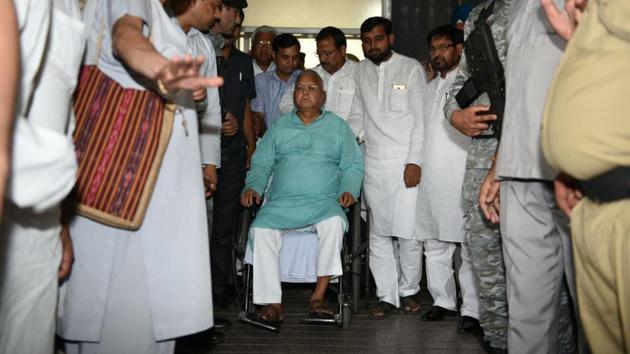
The bail was granted on the grounds that the accused posed no flight risk and that the charges against them are still being deliberated in court. The court specified conditions that the Yadavs must comply with while out on bail, including regular attendance at hearings and cooperation with ongoing investigations.
The land-for-jobs scandal, which emerged in 2021, alleges that Lalu Prasad, during his tenure as the Railway Minister from 2004 to 2009, illegally allocated railway jobs to individuals in exchange for land. This controversial case has been characterized by a series of arrests and has placed the spotlight on the alleged nexus between politics and corruption in India. The Enforcement Directorate (ED) and the Central Bureau of Investigation (CBI) have been actively investigating the case, leading to a complex web of legal challenges for the accused.
Tejashwi Yadav, the former Deputy Chief Minister of Bihar and a key figure in the RJD, has maintained his innocence throughout the proceedings. He has asserted that the charges are politically motivated, aimed at tarnishing the image of the RJD and its leadership. The Yadav family has a storied history in Indian politics, and this case has intensified scrutiny on their political careers and the RJD's influence in Bihar, especially as state elections approach.
The implications of this case are far-reaching, with many analysts suggesting that the outcome may significantly affect the political landscape in Bihar. The RJD has been a formidable force in the state's politics, often challenging the ruling National Democratic Alliance (NDA) coalition. The party's ability to maintain its support base amid legal challenges will be crucial in the upcoming elections.
Public sentiment surrounding the case is mixed. Supporters of Lalu Prasad Yadav see the allegations as an attempt to undermine a leader who has championed the rights of marginalized communities. Critics, however, argue that the charges illustrate a pervasive culture of corruption within political parties, calling for accountability and transparency in governance.
Political commentators have noted that the bail decision could influence the actions of other politicians facing similar allegations. If the Yadavs can successfully navigate the legal challenges, it may embolden others to contest corruption charges more vigorously. Conversely, a conviction could set a precedent, reinforcing the narrative that political leaders are not above the law.
The bail also raises questions about the efficacy of India's legal system in handling high-profile corruption cases. Critics argue that lengthy legal battles often result in prolonged uncertainty, affecting the political stability of parties under investigation. Proponents of reform advocate for expedited trials and more robust mechanisms to hold public officials accountable, arguing that this is essential for restoring public trust in governance.
Lalu Prasad Yadav's history of legal troubles is well-documented. He was previously convicted in a multi-crore fodder scam, resulting in his imprisonment for several years. His political comeback after that conviction has been viewed with skepticism by some, while others see it as a testament to his resilience and political acumen. The juxtaposition of his legal challenges and political ambitions continues to generate debate in Indian political discourse.
As the case progresses, the political ramifications will likely become clearer. The RJD's response to the court's decision may include strategic positioning to rally support and counteract the narrative surrounding the corruption allegations. This incident may serve as a litmus test for Lalu Prasad's political survival and the party's future trajectory.
The land-for-jobs case exemplifies the intricate relationship between politics, law, and public perception in India. While the court's bail decision marks a significant development for the Yadav family, the complexities of the ongoing investigations and the potential for further legal challenges remain critical factors in shaping their political fate.
